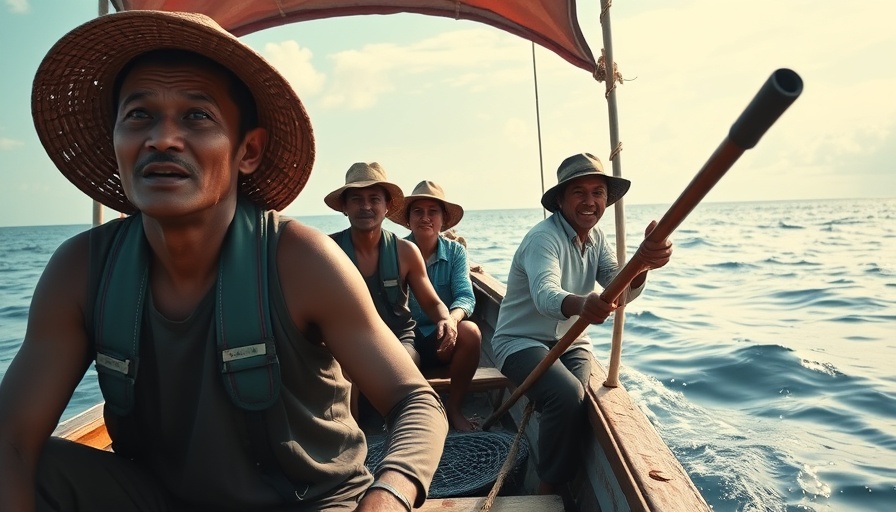
Empowering Small-Scale Fishers Against Climate Change
A newfound digital initiative in Malaysia is transforming how small-scale fishers adapt to the mounting threats posed by climate change. Given that approximately 40% of global fish catches are sourced from small-scale fisheries, the need for timely and reliable data has never been more urgent. Based in Penang, the Asia Digital Hub was recently launched by the global research partnership CGIAR at WorldFish's headquarters, aiming to equip governments and fishing communities with essential tools for decision-making and adaptation to climate challenges.
Collaborative Data Solutions for Marine Management
The Hub operates on the principle that effective solutions should be co-designed by those they aim to benefit—small-scale fishers themselves. One standout tool is Peskas, an open-source system designed for near real-time monitoring of fisheries. Rather than merely serving as data providers, these fishers are encouraged to actively participate in shaping the solutions that impact their livelihoods.
Case Study: Integrating Peskas in Zanzibar
In Zanzibar, WorldFish scientist Pascal Thoya is spearheading the integration of Peskas with local fishing systems. Currently, 100 vessels are equipped with tracking devices, and data collectors are actively recording catch details at landing sites. Before the advent of Peskas, data were recorded solely on paper and submitted annually—making it challenging to manage resources effectively. Now the data is processed quickly, enabling timely responses to emerging issues in local fish populations.
Global Expansion of Digital Tools
Initiated in Timor-Leste in 2016, Peskas is rapidly expanding to various regions, including Malawi, Kenya, and Mozambique, with interest also expressed from countries like Brunei and Ethiopia. The tool's impact is proving crucial in providing decision-makers comprehensive insights for sustainable fisheries management, as highlighted by Arthur Tuda, executive director of the Western Indian Ocean Marine Science Association.
Multi-Dimensional Approach to Fisheries
The Asia Digital Hub looks far beyond just catch data. The initiative aims to integrate variables such as aquatic health, household nutrition, and women's empowerment into a singular data ecosystem. This holistic view allows stakeholders to see connections and influences within the fisheries sector, thereby enhancing the overall management strategies in play.
Benefits of Local Involvement
Local organizations, like the Malaysian Inshore Fishermen Association for Education and Welfare (JARING), are collaborating with WorldFish to better regulate fisheries. Their deputy chairperson, Mohd Faizal Mohd Zabri, emphasized the importance of this partnership in verifying fisher operations and controlling the misuse of subsidies. This approach underscores the shift toward participatory governance in the marine sector.
Looking Ahead: The Future of Fishing Communities
The implications of this initiative extend far beyond the immediate areas of implementation, promising improved cooperation across southern nations and fostering a culture of open-source solutions. As the focus on sustainability grows, small-scale fishers can anticipate a future equipped with better tools to protect their livelihoods and the marine ecosystems they rely upon.
Call to Action: Your Role in Sustainable Fishing
Recognizing the significance of sustainable practices in your daily life can lead to influential change. Whether supporting eco-friendly products or advocating for sustainable food sources, every action contributes to a broader vision for healthy marine environments. By engaging with initiatives like the digital hub in Malaysia, you play a part in ensuring the resilience of our fishing communities against the looming impacts of climate change. Join the movement towards sustainability; every small step counts.
 Add Row
Add Row  Add
Add 



Write A Comment